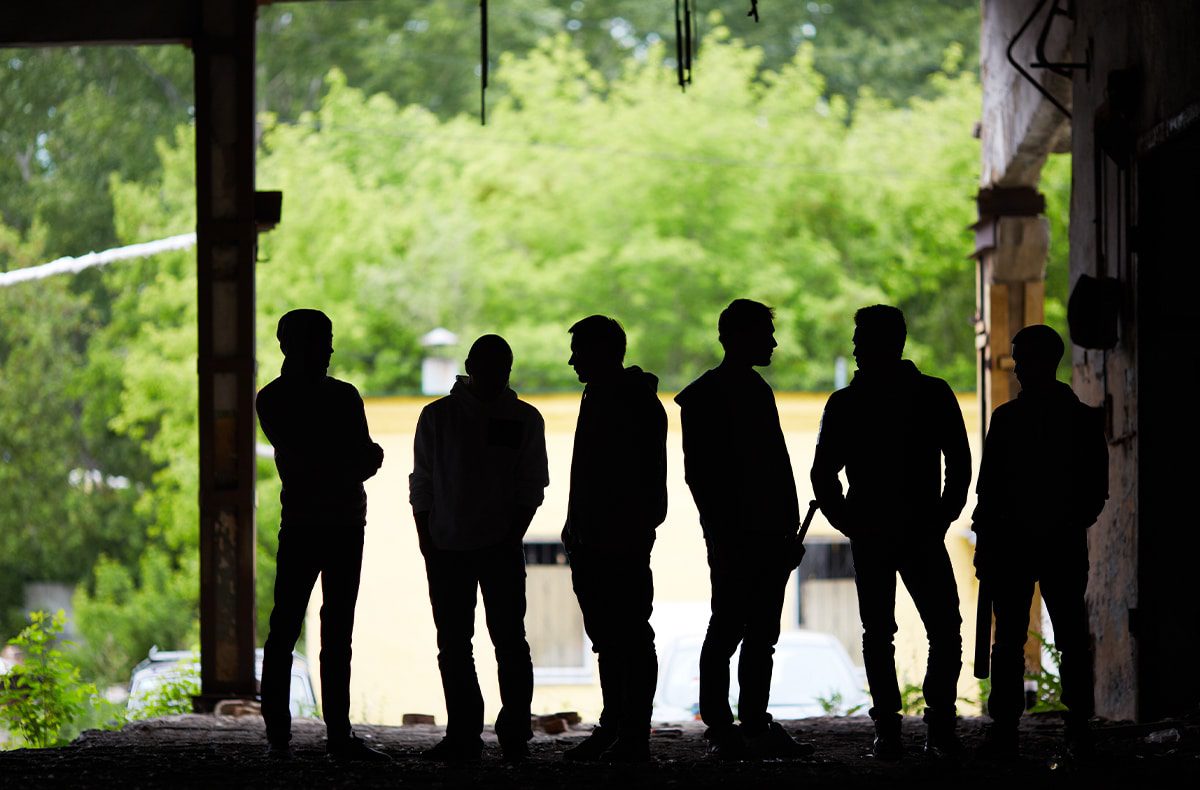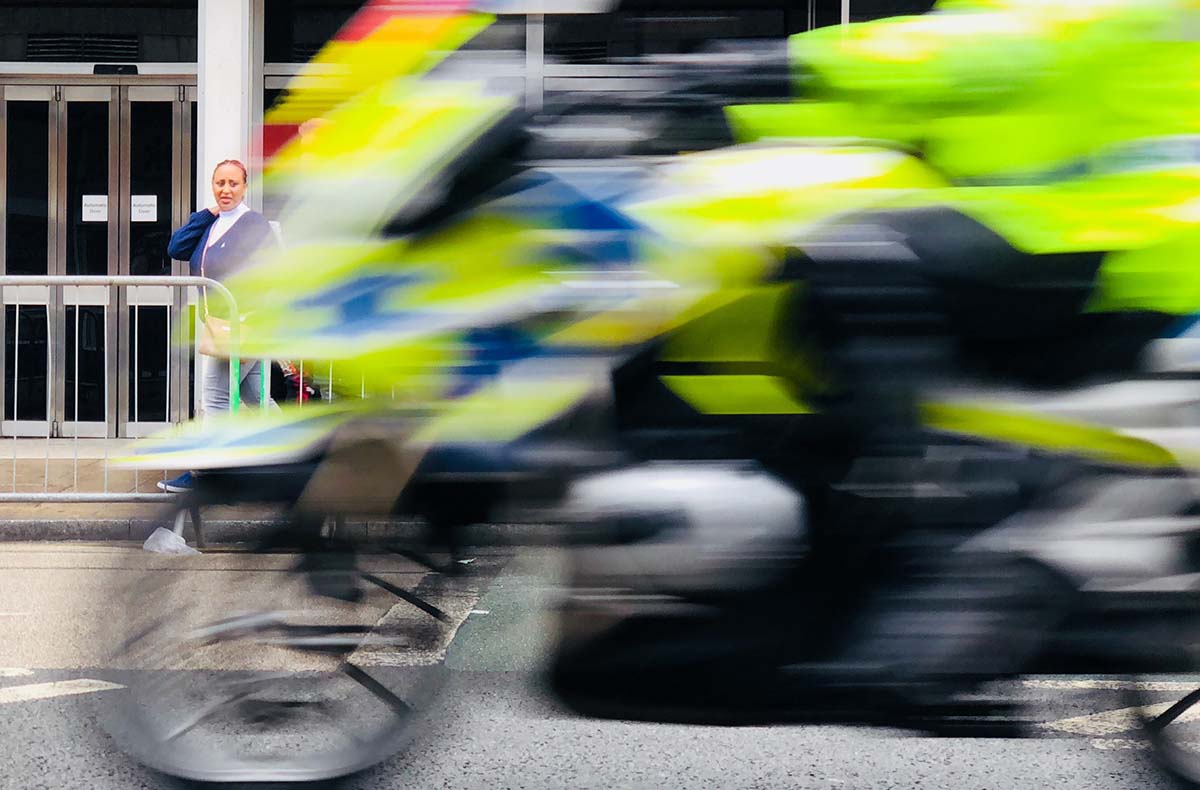
That startling fact emerged from a recent public hearing on the UK’s expanding drugs market via a senior officer at British Transport Police (BTP) desperately trying to track dealers and mules moving vast quantities of Class-A substances around the mainland.
Watching UK crime dramas, you’d be tempted to think that drug gangs are staffed predominantly by pumped-up thirtysomethings driving—in a stereotypical black SUV—illicit cargo to secret dealing spots on behalf of some mid-50s “Mr Big.”
Not so.
The grim and uncomfortable truth of the modern war on drugs is that while the ultimate crime bosses are often wealthy and middle-aged, their frontline foot-soldiers are predominantly adolescents. Often very young. Think primary school age.
Around 40% of county lines drug traffic is moved on the UK’s trains. Giving evidence to the recent UK Parliamentary hearing, Charlie Doyle, assistant chief constable at BTP, which polices the UK’s rail network, revealed the shocking age profile of domestic drug mules.
“Of the children we deal with, 38% are aged between 10 and 19, and 40% are 19 to 29. They are not generally from stable family backgrounds. A lot of them will already be known by services. They are effectively taken from the streets, exploited because of their age and vulnerability, and used to move drugs around the country,” Doyle told MPs.
It’s an extraordinary admission: almost four in ten mules are below twenty.
According to data produced by the National Crime Agency, Britain’s equivalent of the FBI, we also know that 91% of offenders linked to county lines are male. So the grim reality of the “county lines” challenge is not just the rising tide of drug-taking and associated violence, but the vast threat it poses to future generations of young men and their communities.
For the uninitiated (including NT’s international audience), “county lines” trafficking is now the dominant model within a UK market for illicit substances that sees 117 tonnes of cocaine and 38 tonnes of heroin consumed annually. Put simply, criminal gangs exploit youngsters to move (internally) and deal imported drugs for them. Some 3,000 internal trafficking routes have been identified by organised gangs from major cities such as London, Liverpool and Birmingham sending youngsters across county borders and into smaller towns, or rural areas, to expand their markets. And it is an escalating threat.
Many non-Brits, and quite a few locals, mistakenly think the “lines” reference in “county lines” acknowledges the internal borders youngsters cross when they move the drugs from one county to another. But “county lines” refers to the burner cell phones used by gangs to contact customers. Typically, a slightly older and more experienced gang member (we’re still talking just 18-25 years old) is responsible for managing the “line” before passing orders to younger foot-soldiers.
Under this model, these middle-managers and crime bosses are at low risk of getting caught: that burden falls onto the often-vulnerable youths on the frontline—some of whom have belatedly been recognised as victims because they are exploited. Many have been lured into illicit trade because they are drug users in debt to slightly older dealers. They work for organised crime to pay off cash they’ve been manipulated into owing—a concept known as “debt bondage.” And they are dispensable: irrespective of what older gang members tell them.
This so-called “cuckoo-ing” of vulnerable youths by more experienced members is commonplace. Some 27,000 youngsters are estimated to be caught up in the county lines mess—and many have been arrested repeatedly by the time they reach their twenties. By the time they emerge from prison or young offenders institutes, they are either so ingrained in the “business” that they re-enter it swiftly—or are so broken they do not have a future worth discussing.
As Doyle told MPs: “My biggest concern is not necessarily the financial gain that organised crime groups are making; it is the exploitation of the children they are using to make that money.”
Cutting off supply chains by identifying middle-managers, gangland bosses and international suppliers is a never-ending task for frustrated law enforcement officials. But for local communities, dealing with a lost generation of young (predominantly) men is a more visceral and emotional challenge. How, for example, can legitimate public resources be used to direct, guide or encourage impressionable youths away from the lure of easy drug money that weds them to a life of crime?
Of the younger drug mules or gang members arrested by the BTP, around a third get diverted to support services rather than charged with possession. But that means that some two-thirds do not—and that is just those we know about because they get arrested by a police force.
Under the current UK government’s 10-year drugs strategy, authorities belatedly have a policy which has at least switched more attention to preventative, as well as demand-reduction, measures: more education programmes, rehabilitation and direct support or interventions than previously (when interventions too often ended in attempts to arrest the UK’s way out of drug problems).
But in the UK, as elsewhere in the post-lockdown world, preventative resources remain scarce. While the 10-year strategy carries a bespoke funding pot, not enough money feeds through to the local communities most affected by the drugs trade—from where this lost generation of gang members is recruited and many regular drug users created.
That’s not to say that there aren’t effective intervention programmes which save vulnerable youngsters from entering a life of crime or addiction, or encourage them away from gangs. There are many—often run by innovative charities or voluntary sector organisations—they just remain under-resourced when UK demand for recreational drugs has soared.
As voluntary sector and academic witnesses to the Parliamentary inquiry have said: resourcing support services fully would be a massive step towards tackling county lines. Without sustained investment, the UK risks creating further generations of the Lost Boys.



